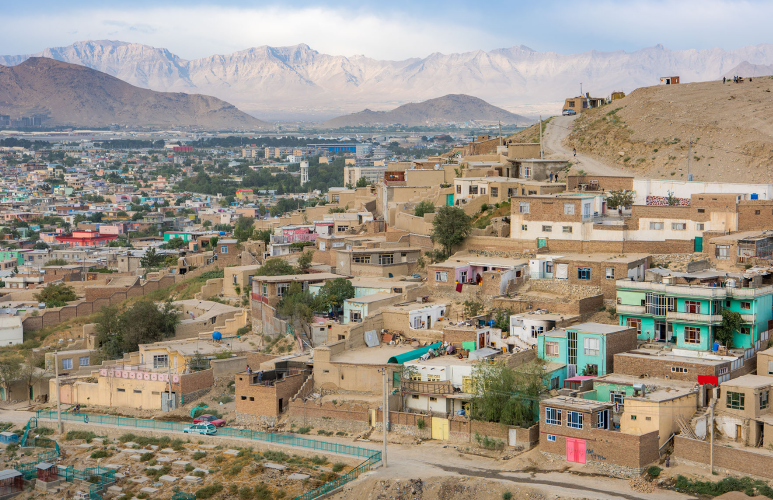Representatives from 16 nonprofits and non-government organizations (NGOs) issued a statement declaring their intent to continue providing humanitarian aid to the people of Afghanistan. The country’s populace is experiencing numerous crises stemming from the United States’ withdrawal of military operations and subsequent action by the Taliban, which has taken over the country’s government operations.
In their statement — formally Statement of Principals of the Inter-Agency Standing Committee (IASC) on Afghanistan — the organizations, which are under the aegis of the World Health Organization, drew attention to the ongoing food insecurity and malnourishment epidemic which predates the Taliban takeover. The statement also highlighted preexisting drought, conflict and coronavirus conditions while noting that since the end of May, the number of people within Afghanistan who have been displaced and are in need of aid has more than doubled, reaching 550,000.
The organizations echoed U.N. Secretary General António Guterres’ request that all involved parties cease violence and comply with international humanitarian law and human rights, including allowing safe, rapid and unimpeded access for aid workers so they can deliver their goods and services to civilians in need.
They also reiterated their commitment to preserving the rights of the Afghan population, including women and girls. Under the Taliban, which previously controlled Afghanistan between 1995 and 2001, females were restricted regarding where, how and what type of education services they could receive.
Response to the statement has been about what the committee could have hoped. “It is now largely accepted within the United Nations body that this was the correct move,” NGO alliance organization InterAction CEO Sam Worthington told The NonProfit Times.
“We have heard an understanding from the U.S. government that this allows humanitarian infrastructure to remain in place, and we have heard from individual Afghans living through this crisis that this means organizations they are working with are going to stay with them and provide assistance. Thousands [of aid workers] will stay in Afghanistan working under the auspice of humanitarian intervention. We now face the process of negotiating ways of working with the Taliban to deliver assistance.”
Humanitarian organizations will have at least tacit support from the Biden Administration. “The U.S. supports the global humanitarian system and its independence from the foreign policy, and supports its aim of purely humanitarian services to populations,” Worthington continued. “Biden, in one of his first speeches [on the crisis], mentioned the U.S. would continue humanitarian assistance through humanitarian mechanisms even with the Taliban in power.”
Above all, the statement called for government, institutional and individual funders to continue supporting organizations working within Afghanistan. As they wrote:
We call on donors to remain steadfast in their support for humanitarian operations in Afghanistan and to support resilient livelihoods. The humanitarian community reached almost 8 million people in the first half of 2021 with aid. Timely funding saves lives, protects livelihoods, eases suffering and prevents further displacement. A total of US$1.3 billion is required to reach almost 16 million people with humanitarian assistance in Afghanistan; only 37 per cent of required funds have been received, leaving a shortfall of almost $800 million.
“The focus of world in recent days has been on the airlifts and evacuations out of Kabul, but this statement is a recognition that people of Afghanistan need the support of the international community now more than ever,” Dublin-based Concern Worldwide CEO Dominic MacSorley wrote in an email to The NonProfit Times. “In a country where 18 million people depend on humanitarian assistance – among which are three million children at risk of acute malnutrition – the human toll is immense, especially for women and children.
“It’s critical to remember that principled, accountable, properly targeted humanitarian assistance can be delivered in Afghanistan and has been for many years,” MacSorley continued. “That must be at the forefront of our minds because, while the world waits, observes, and adjusts to the new reality, millions of people are in need of essential services, protection and seeds ahead of the critical winter planting season.”
In addition to MacSorley and Worthington, the statement’s signatories include:
- Michelle Bachelet, High Commissioner for Human Rights
- David Beasley, Executive Director, World Food Programme
- Sean Callahan, President and the Chief Executive Officer, Catholic Relief Services
- Henrietta H. Fore, Executive Director, United Nations Children’s Fund
- Tedros Adhanom Ghebreyesus, Director-General, World Health Organization
- Filippo Grandi, High Commissioner for Refugees
- Martin Griffiths, Emergency Relief Coordinator and Under-Secretary General for Humanitarian Affairs
- Cecilia Jimenez-Damary, Special Rapporteur on the Human Rights of Internally Displaced Persons
- Natalia Kanem, Executive Director, United Nations Population Fund
- Abby Maxman, Chair, Steering Committee for Humanitarian Response, and President and CEO, Oxfam America
- Ignacio Packer, Executive Director, International Council of Voluntary Agencies
- Qu Dongyu, Director-General, Food and Agriculture Organization
- Achim Steiner, Administrator, United Nations Development Programme
- António Vitorino, Director General, International Organization for Migration
